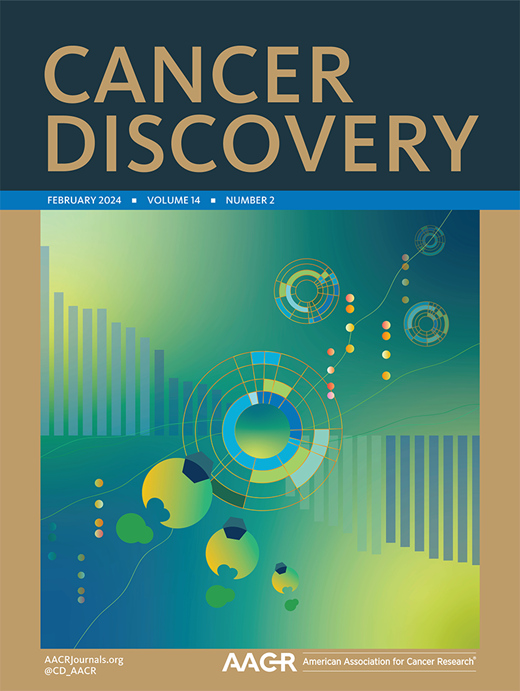雄激素受体抑制增加MHC I类表达并改善前列腺癌的免疫反应
IF 29.7
1区 医学
Q1 ONCOLOGY
引用次数: 0
摘要
肿瘤通过多种机制逃避免疫检测和消灭。在这里,我们以前列腺癌为模型,研究雄激素依赖性肿瘤如何通过下调主要组织相容性复合体 I 类(MHCI)来逃避免疫。我们报告说,晚期前列腺癌对免疫疗法的反应与 MHC 表达的升高有关。为了揭示其机制,我们进行了全基因组 CRISPRi 筛选,发现 AR 是 MHCI 通路的抑制因子。缺乏AR的侵袭性前列腺癌共生小鼠模型也显示出肿瘤免疫原性增加,并促进了T细胞介导的肿瘤控制。值得注意的是,雄激素受体阻断后 MHCI 表达的增加是短暂的,并与 AR 抑制的抗性相关。机理研究发现了 MHCI 转录起始位点上游的雄激素反应元件,这些元件被删除后会增加 MHCI 的表达。这些研究成果共同强调了激素促进免疫逃逸的另一种机制。本文章由计算机程序翻译,如有差异,请以英文原文为准。
Androgen receptor inhibition increases MHC Class I expression and improves immune response in prostate cancer
Tumors escape immune detection and elimination through a variety of mechanisms. Here, we used prostate cancer as a model to examine how androgen-dependent tumors undergo immune evasion through downregulation of the major histocompatibility complex class I (MHCI). We report that response to immunotherapy in late-stage prostate cancer is associated with elevated MHC expression. To uncover the mechanism, we performed a whole genome CRISPRi screen and identified AR as a repressor of the MHCI pathway. Syngeneic mouse models of aggressive prostate cancer deficient in AR also demonstrated increased tumor immunogenicity and promoted T cell mediated tumor-control. Notably, the increase in MHCI expression upon androgen receptor blockade is transient and correlates with resistance to AR inhibition. Mechanistic studies identified androgen response elements upstream of MHCI transcription start sites which increased MHCI expression when deleted. Together, this body of work highlights another mechanism by which hormones can promote immune escape.
求助全文
通过发布文献求助,成功后即可免费获取论文全文。
去求助
来源期刊

Cancer discovery
ONCOLOGY-
CiteScore
22.90
自引率
1.40%
发文量
838
审稿时长
6-12 weeks
期刊介绍:
Cancer Discovery publishes high-impact, peer-reviewed articles detailing significant advances in both research and clinical trials. Serving as a premier cancer information resource, the journal also features Review Articles, Perspectives, Commentaries, News stories, and Research Watch summaries to keep readers abreast of the latest findings in the field. Covering a wide range of topics, from laboratory research to clinical trials and epidemiologic studies, Cancer Discovery spans the entire spectrum of cancer research and medicine.
 求助内容:
求助内容: 应助结果提醒方式:
应助结果提醒方式:


